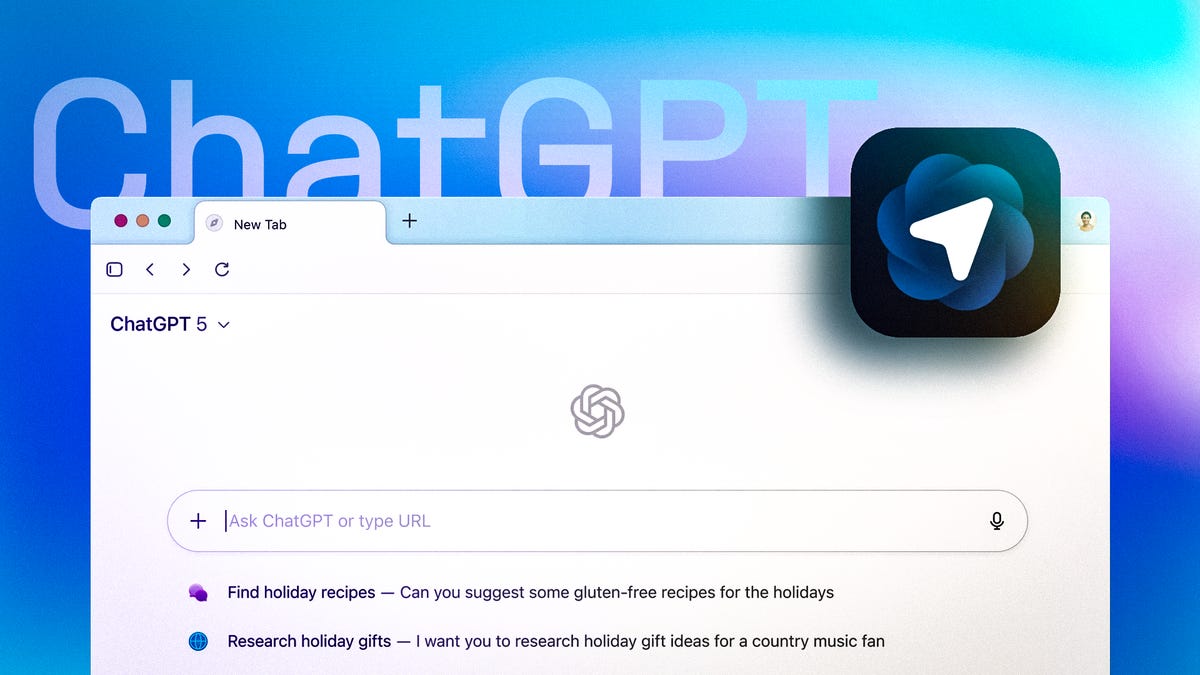OpenAI Unveils ChatGPT Atlas, an AI-Powered Web Browser

Key Points
- OpenAI releases ChatGPT Atlas, an AI‑enhanced web browser.
- Atlas combines standard browsing features with built‑in ChatGPT capabilities.
- A sidebar provides page summaries, explanations, and quick answers.
- Optional browser memory tracks past activity and suggests related content.
- Natural‑language commands let users control tabs and searches conversationally.
- New agent mode enables limited AI‑driven actions like travel booking.
- Initial release is for MacOS; Windows, iOS and Android support is upcoming.
- Atlas competes with AI integrations in browsers from Google and others.
OpenAI announced the launch of ChatGPT Atlas, a generative‑AI‑enhanced web browser that embeds ChatGPT directly into the browsing experience. The MacOS‑first browser offers traditional features such as tabs, bookmarks and extensions alongside AI‑driven tools like a built‑in sidebar for page summarization, in‑line writing assistance, natural‑language commands and optional memory of past activity. Atlas also introduces an "agent mode" that lets the AI perform limited tasks such as booking travel or gathering research. While the initial release targets MacOS users, OpenAI says support for Windows, iOS and Android is forthcoming.
Overview
OpenAI has expanded beyond its ChatGPT chatbot platform by releasing ChatGPT Atlas, a generative‑AI‑powered web browser. Announced during a YouTube livestream, Atlas integrates ChatGPT’s conversational abilities directly into the browsing interface, aiming to make everyday web use more interactive and conversational.
Key Features
The browser retains familiar elements—tabs, bookmarks, extensions, incognito mode—while adding AI‑centric capabilities. Users can open a new tab and either type a URL or pose a question to ChatGPT. A built‑in sidebar can analyze the current page, delivering summaries, explanations or quick answers without leaving the site. In‑line writing assistance offers suggestions and completions within any text field, such as email drafts.
Atlas also includes optional "browser memory" that tracks pages and topics a user has explored, enabling the AI to suggest related content, retrieve past research or automate repetitive tasks. Natural‑language commands let users type instructions like “reopen the shoes I looked at yesterday” or “clean up my tabs,” and the browser responds accordingly.
Agent Mode
OpenAI previewed a new "agent mode" within Atlas that allows the AI to take limited actions on the user’s behalf, such as booking travel, ordering groceries or gathering research. The mode is positioned as faster than standard ChatGPT and includes safeguards to keep users in control. Currently, agent mode is available to Plus and Pro subscribers and in beta for Business users.
Availability and Future Plans
ChatGPT Atlas is initially available for MacOS users worldwide. OpenAI indicated that versions for Windows, iOS and Android are "coming soon." Users download the browser from chatgpt.com/atlas, sign in with their ChatGPT account, and can import bookmarks, passwords and browsing history from their existing browser.
Industry Impact
The launch places OpenAI in direct competition with other tech companies embedding AI into browsers, such as Google’s integration of Gemini into Chrome. Earlier this year, Perplexity introduced Comet, another AI‑powered Chromium‑based browser. OpenAI’s move signals a broader industry trend toward AI‑first tools that blend traditional functionality with conversational intelligence.